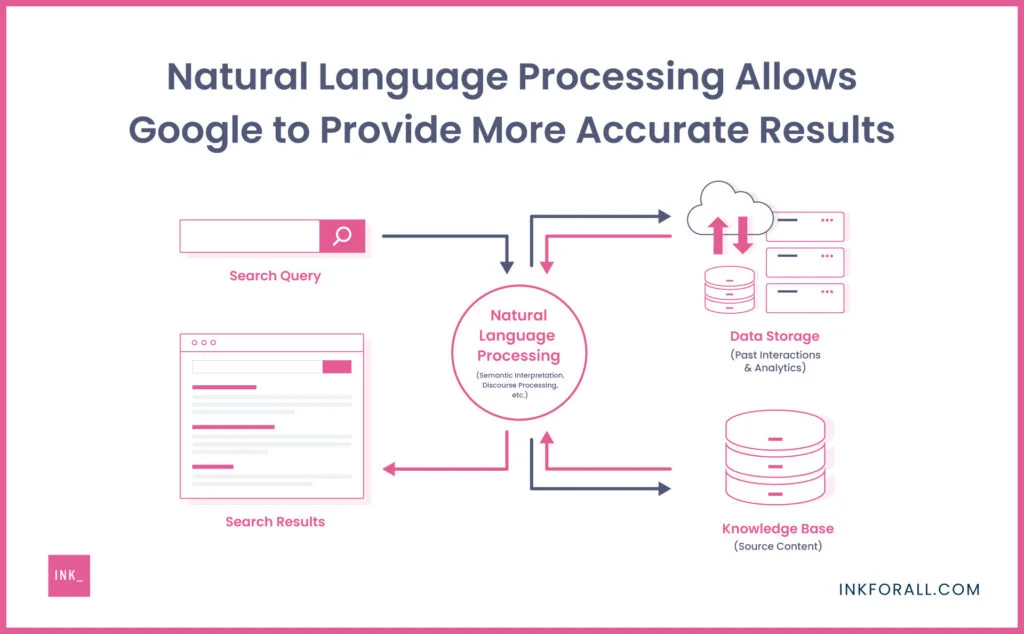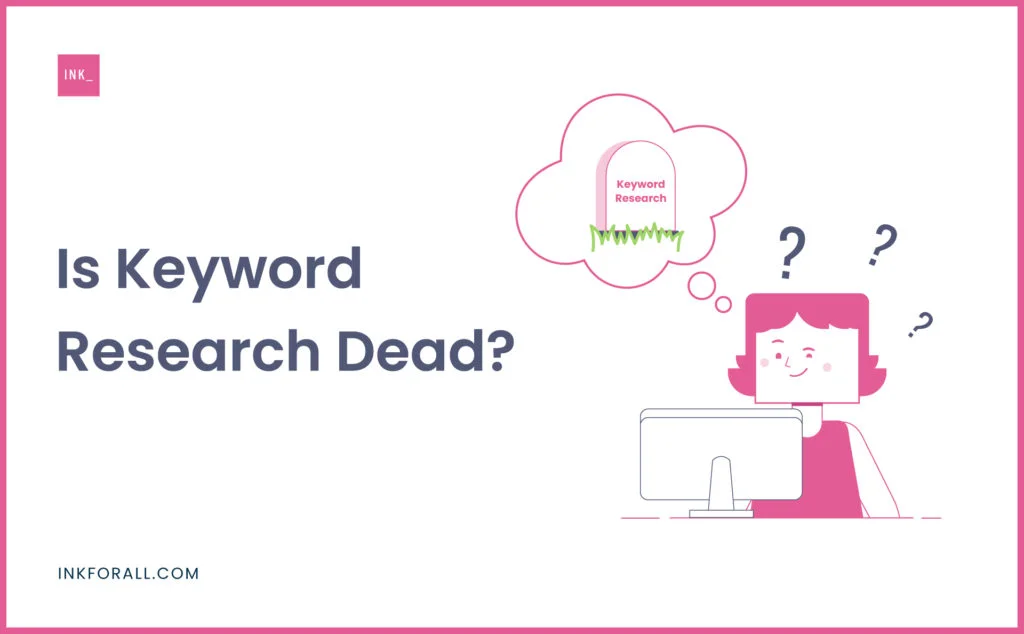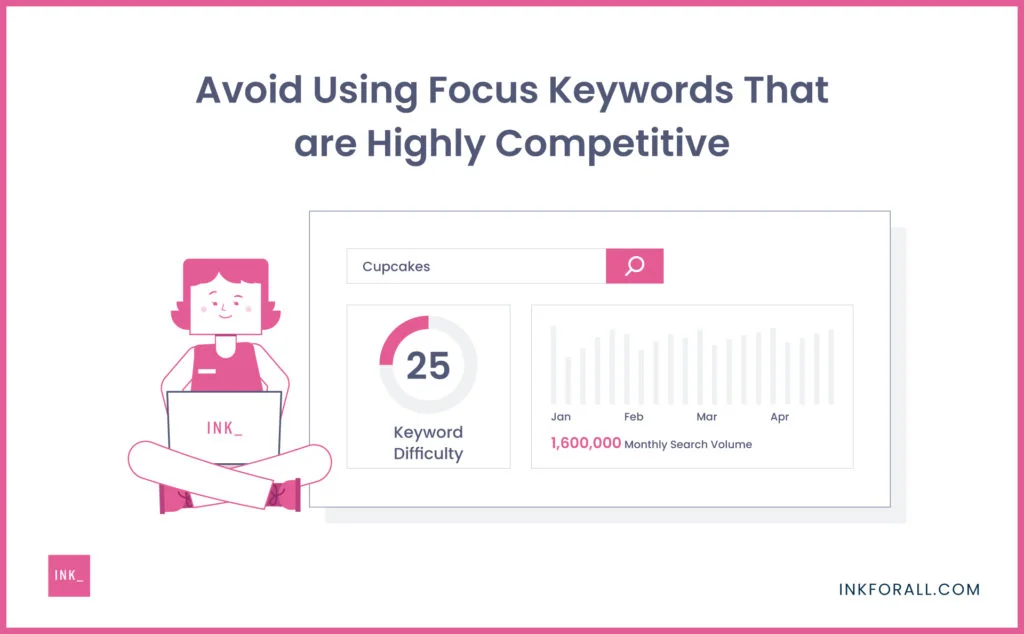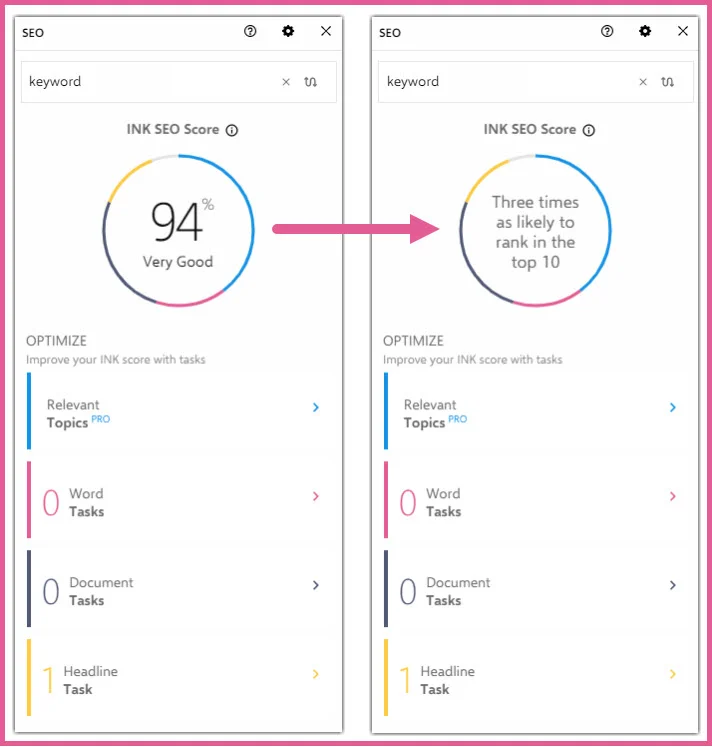

Choosing the right focus keyword or keyphrase requires a clear understanding of your target audience. To gain this type of insight, ask yourself: What are people searching for online? What are their interests?
Highlights:
- A focus keyword or target keyword is the term around which you optimize your content to help you rank on Google SERP.
- Many SEO writing tools use focus keywords and phrases to help writers optimize their content.
- Semantic search allows Google to generate the most accurate results by understanding search intent, query text, and the relationship between words.
- Knowledge Graph was Google’s first attempt at improving search results by understanding search intent and the relationship between real-world entities.
- The Hummingbird algorithm focuses on conversational search and human search.
- RankBrain is a machine learning system aimed at understanding the intent behind people’s searches.
- BERT helps Google understand the context of words used by people in their queries, particularly conversational queries.
- Keyword research is still an essential part of any search engine optimization strategy.
- A focus keyword helps establish a clear subject relevance and determines the ideal traffic for your page or site.
Keyword research is not an exact science. You have to consider different factors to choose the best primary keyword that would help drive traffic to your page. In this post, we’ll give you helpful tips to improve your page traffic with the right focus keyword.
What is a Focus Keyword?
A focus keyword or target keyword is the term around which you optimize your content to help you rank on Google SERP. It should match the intent of your target audience. Meaning, it has to be relevant so your page gets a better chance of being discovered online.
A good deal of SEO writing tools today, like the INK Editor, use focus keywords and keyphrases to help writers optimize their content better. For instance, the INK editor’s SEO scoring system measures your content’s overall search engine optimization based on the focus keyphrase(s).
INK compares your work with millions of content pieces competing for the same focus keyword on the web in real-time. Then, it computes your content’s relevance and topical completeness. In addition, its advanced AI technology understands the meaning and concepts behind your keywords and content, allowing it to give intelligent SEO recommendations.
The higher your INK SEO Score for a focus keyword, the higher your chance of getting to the first page of SERP.
So, as you now know, selecting the right focus keyword is vital to your website or online business. Moreover, the right word or phrase could help establish your site’s online visibility and traffic.
However, to pick the right focus keyword, you must know what people are searching for online. The best way to do this is to create an effective keyword research strategy.
But before that, let’s first look at how Google interprets keywords and uses them to provide users with the best answers to their queries.


Eviction Notice: Writer’s Block
Get unstuck with INK. Craft high-quality content effortlessly. Never be stopped by writer’s block again.
How Google Interprets Focus Keywords and Uses Natural Language
Before 2013, Google’s algorithm didn’t understand the context of the questions people entered on Google Search.
For instance, if you search “what is a pine cone made of” back then, Google would only pick the first keyphrase that makes sense to it. In this example, it would be “what is a pine.” Then, it would match this phrase with web pages using that exact phrase.
Because Google Search relied heavily on keyword matching that time, site owners resorted to keyword stuffing and spamming to rank high on SERP. Unfortunately, this black hat SEO technique led to people getting irrelevant results for their queries.
However, the advent of semantic search changed everything. It allowed Google to generate the most accurate results by understanding:
- Search intent
- Query context
- Relationship between words
Simply put, semantic search not only relied on keywords to provide people with the best answers to their queries. It also aimed to understand natural language — the way we, humans, would.
The following is a brief history of how semantic search began:
History of Semantic Search


Knowledge Graph
The semantic search began with the introduction of the Knowledge Graph in 2012. It was Google’s first attempt at improving search results by understanding search intent and the relationship between real-world entities. According to SEO experts, the Knowledge Graph paved the way for Google’s many broad core algorithmic changes.
The Knowledge Graph collected information from public domains to create a massive repository of entities and fact-based information. Google then tapped into the Knowledge Graph’s understanding of semantic search to show people the most relevant results.
Hummingbird
Following the launch of the Knowledge Graph, Google rolled out its first broad core algorithm update in 2013. It’s widely known as the Hummingbird update, which affected about 90 percent of searches worldwide.
The Hummingbird algorithm focuses on conversational search and human search. It uses natural language processing(NLP) to provide niche results for focus and long-tail keywords through conversational search.
Hummingbird improved search by focusing on theme-related topics and synonyms of keywords. As a result, it made searching for topics you’re not knowledgeable about more straightforward.
Through semantic search and NLP, the Hummingbird algorithm laid the groundwork for Google’s voice search.
RankBrain
Two years after rolling out Hummingbird, Google updated its search technology with an AI known as the RankBrain. Unlike Hummingbird, RankBrain acts both as a ranking signal and a query analysis system.
RankBrain is a machine learning system that shares the same goal as Hummingbird — to understand the intent behind people’s searches. However, RankBrain continues to learn. It analyzes high-performing search results and identifies the similarities between web pages people find valuable.
Because of RankBrain, a page could rank high on SERP, even if it’s not using the exact focus keyword used in a query.
BERT
The most significant update to search since Google launched RankBrain in 2015 was BERT. BERT stands for Bidirectional Encoder Representations from Transformers. It is a neural network-based technique for natural language processing.
BERT’s purpose is to help Google better understand the context of words used by people in their queries, particularly conversational queries.
Often, conversational questions include prepositions like “from” and “to.” But before BERT, Google didn’t understand these words. So, by teaching Google’s search algorithm to understand the intent behind these words, people can now search in ways that feel natural to them.
Is Keyword Research Dead?


With Google’s shift to semantic search, many SEOs now ask: Is keyword research dead?
Keyword research is not dead, and it’s still an essential part of any search engine optimization strategy. However, it’s not a straightforward process anymore. You can’t just jump online, use a keyword research tool, and pick the most searched and lowest competition keyword you’ll find.
When doing keyword research, you now have to think of the topics people are searching for online. You can’t just rely on the search volume to determine the amount of traffic it can generate for your content. That’s not how it works now.
With Google using NLP and semantic search, you should use keyword research to shape and inform your content strategy. Meaning, your focus keyword should not take over your page’s content. Rather, use it along with its synonyms and related terms to make your content sound natural.
Why Use a Focus Keyword in Your Page Content?
Now that Google has shifted to semantic search and favors intent over anything else, it doesn’t mean that you should stop using focus keywords in your content. It’s best to have a target keyword for two things:
- Establish a clear subject relevance
- Determine the ideal traffic for your page or site
Establish Subject Relevance
Contrary to what some SEO professionals believe, using keywords is not an obsolete optimization process. A target keyword could help you establish your content’s subject or topic relevance.
Keywords help Google understand the relevance of your content to people’s queries and its relationship with other topics online. Therefore, you must use your primary keyword to familiarize yourself with topics that matter to your target audience.
Semantic search now enables writers to use their focus keyword in combination with its synonyms and related terms. Thus, giving content today a more natural tone and sound.
Target the Right Traffic
Part of optimizing your content is placing your primary keyword in essential sections of your page. Yes, the whole page and not just your content, including page elements like the meta description, title, and your page’s URL. Doing so may help you attract your target audience and drive the right traffic to your site.
Using a primary keyword in your URL can help people and Google determine what your page is about even without looking at it. But first, you need to make sure that your keyword is relevant to the topic you’re covering. Otherwise, your page might end up being penalized by Google and other search engines.
How to Choose the Right Focus Keyword


You should know how to do proper keyword research to identify the best focus keyword for your topic. However, if you’re new to SEO, here’s a quick guide to help you search for the right keyword efficiently.
1. List the Topics You Want to Cover
The first thing you need to do is create a list of topics you want to cover. Come up with five to ten topics related to your site’s niche or business industry. For instance, your topics would most likely be about shoes, clothes, accessories, or bags if you’re managing a fashion blog.
2. Identify Words and Phrases That Fall Into Your Chosen Topics
With your chosen topics as your guide, you now need to search for terms that fall under these topics. Let’s say your first topic is “workout shoes.” Use this as your seed keyword to find keywords related to your topic. Create a list of at least ten to fifteen keywords.
3. Check the Ranking Difficulty and Monthly Search Volume of the Keywords
When choosing your keywords, make sure that you check their ranking difficulty and monthly search volume.
The ranking difficulty refers to the competitiveness of the term. The higher the ranking difficulty of a word is, the harder it is to rank for.
On the other hand, the monthly search volume pertains to the search frequency of the term in a month. Popular terms tend to have higher search volumes.
In essence, the ideal focus keywords have low ranking difficulty or competition but have high search volume. For this step, you can use tools like Ahrefs and KWFinder to show you the ranking difficulty and search volume of keywords.
4. Narrow Down Your List to the Most Relevant Keywords
After completing your list of keywords, it’s now time to narrow your list down to the most relevant ones. First, you must filter your list and set aside the terms with low search volume or are highly competitive.
Now, choosing the most relevant term to be your focus keyword depends not only on your keyword research tool’s data. It would help if you also use your sound judgment.
Remember: the best keyword must reflect your site’s niche, values, products, or services. And, it also has to echo your target audience’s interest.
5. Related Keywords and Phrases
Now, you might be wondering what you’re going to do with the other terms on your list. If they’re too competitive, you can discard them. Or, if they are connected to your focus keyword, you can use them as related terms in your content. In some cases, you might even use them as focus keywords for other topics that you want to cover.
Following these tips, you’ll be able to come up with a list of focus keywords that could drive traffic to your page. If you’re looking for free tools to aid you with keyword research, keep reading for some recommendations.
Free Tools for Finding the Best Focus Keyword
Keyword research tools are essential for finding the best target keyword for your content. However, most of these tools require monthly or annual subscriptions that could cost anywhere around $50 to over a hundred dollars. But don’t fret because there are free tools out there that you could still use. Below is a sampling of them.
Google Trends
Google Trends is a great tool when it comes to visualizing the popularity of a term over time. It can tell you when people show the most interest in the topic or keyword you’re targeting. Google Trends ranks a search term’s popularity from 0-100. The higher the score, the more popular the search topic is.
Google Trends can also tell you the regions where your target keyword attracts the most traffic.
You can use Google Trends not just to measure the popularity of your target keyword or chosen topic. You can also use it to determine the best times to publish your posts and where your target audience is located.
Keyword Sheeter
If you want a quick way to generate related terms out of your seed keyword, Keyword Sheeter may be the tool for you. In one click, you can generate around a thousand ideas out of your key term.
You can also use Keyword Sheeter’s negative and positive filters to get specific results. However, this keyword research tool is only free when you’re generating related ideas for your topic. You must purchase the complete report if you want to access additional information like search volume and CPC.
Keywordtool.io
Like Keyword Sheeter, Keywordtool.io is a scraper. However, it’s faster, and it gets its results not just from Google but also from other platforms, like YouTube, Amazon, or Instagram.
This tool is handy if you’re managing an e-commerce site or social media channels.
These three tools are good choices if you’re new to SEO and want to learn the basics of keyword research. However, if you need a more reliable tool, check out our resident SEO expert and CTO, Alexander De Ridder’s recommendations here.
Final Thoughts
Using focus keywords for optimizing your content or site pages is still an essential part of any SEO strategy. However, when Google shifted to semantic search, the purpose and approach for using keywords changed.
Keyword research is not dead, but it’s now part of a more complex SEO process. It’s about more than just finding the popular terms people use to search for information online. Keyword research is the foundation that guides the whole optimization effort.
Without a clear focus keyword, writing your content or optimizing your page would be like walking on a busy street blindfolded. You’ll have no sense of direction and might end up going the wrong way.
So, never take keyword research for granted. It’s the compass that will help you stay on the right track as you write your content.

